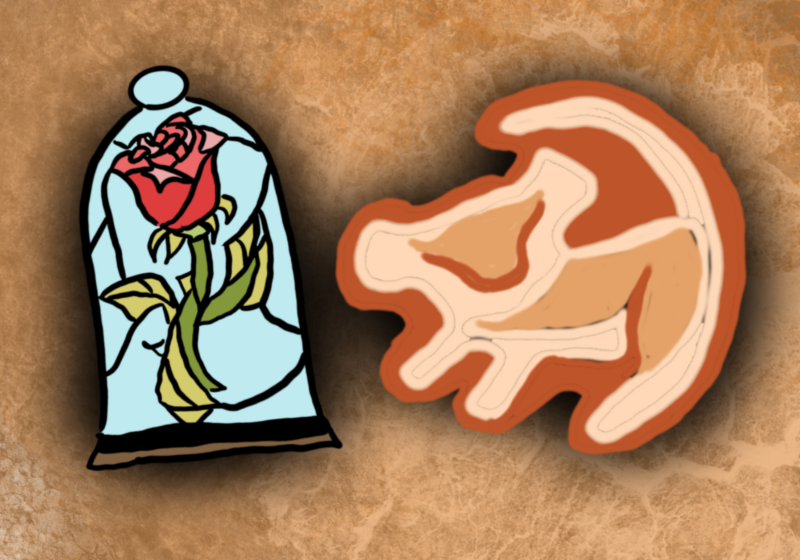People sometimes call Andrew Evans an influencer. He hates it.
Evans — a travel writer, TV host, and author who has completed over 40 assignments for National Geographic — delivered the first speech of TEDx University of Rochester 2019 in the Feldman Ballroom on Sunday.
His talk, ranging from his travels to his philosophies on life, was titled “How to Be an Influencer.” But he is far from a proponent of standard influencer culture, which he referred to as “the latest iteration of imperialism” that leads to “irresponsible travel behavior.”
“What influencers have done is to take the whole world and remap it into whatever is #instagrammable and toss the rest,” Evans said.
Evans began his talk by talking about an earlier iteration of imperialism: Commodore John Byron’s encounters Pacific islands 1765.
Evans detailed how Byron, “sailing across the infinite blue Pacific Ocean at the speed of a child’s bicycle,” was in dire straits when he stumbled across two beautiful islands. Much to the despair of his sick crew, the coral was too shallow, preventing a landing. And the natives on the beach, carrying 16-foot spears, were not particularly welcoming. For two days Byron tried and failed to successfully dock his ship, Evans said, until finally he fired a cannonball over the heads of the natives and sailed. Byron, frustrated by these failures, marked down the islands on his new map under the name “the Islands of Disappointment.”
Evans recapped the story as “a stranger attempts to come to shore. He fails to engage or understand the locals. He captions their entire society with a single emotion — disappointment — and for 254 years, that name sticks.”
More than two centuries later, Evans himself embarked on a journey to the Islands of Disappointment, which he refers to by their native names, Tepoto and Napuka. Even though Evans arrived unannounced like Byron, he was welcomed by the locals, who shared their resources and smiles.
Evans spoke of the necessity of the “basic travel manners” he practiced, like listening, paying attention to the culture, paying for his stay, and asking for permission before photographing anyone.
The experiences in the Pacific islands changed Evans, who said that “the biggest souvenir of my lifetime of wandering has been unfolding the blueprint of my own ignorance. Every time I go somewhere, I learn what I don’t know.”
He said his career as a professional traveler has shown him the dangers of our ethnocentric tendencies and the confirmation bias that arises from them.
“We interpret the world based on our own tribe, our own psyche, our own experience,” Evans said. “And in the colonial era, we tended to define the whole world on how we could exploit it. The Gold Coast, Côte d’Ivoire [the Ivory Coast], the Spice Islands.”
In the modern era, this exploitation lives on through social media travel influencers, who have monetized the sanctity of travel, Evans said.
“Because now everyone is looking for Instagram-worthy selfie spots, […] we’ve destroyed iconic travel destinations,” he said. “We’ve downgraded and cheapened what I love most about travel, which is real connections with real people in real places.”
Evans views social media as the conduit for mass discontentment, describing how “we are creating a universe of unrealistic expectations. That, in turn, is going to lead us to be more and more disappointed, in our travel and everywhere else.”
For Evans, the complexity of the world, in all its varied, diverse beauty, was not meant to serve as a backdrop for our social media accounts. “It’s the world, and you are a part of it,” he said.
“The real test of travel is not our glossy expectation of the exotic world; it’s how we react to a place when we get there.”
Yet the talk was not a call to completely disconnect from the Internet. Evans admitted, “It’s too late. We’re already part of the Matrix, yo.”
Instead, true to this year’s “What if?” TEDx theme, Evans asked the audience, “What if we were less concerned about becoming influencers and a little more discerning about the influences that we let into our lives? What if we paid closer attention to who was drawing our map of the world? And what if occasionally we said no thank you, unsubscribe?”
He ended the talk with a call for action: “We need to be open and to listen to the places that we go to. We need to laugh at our mistakes. We need to correct our misconceptions. We need to attack our own ignorance […] and above all, we need to keep space in our life for good people.”







